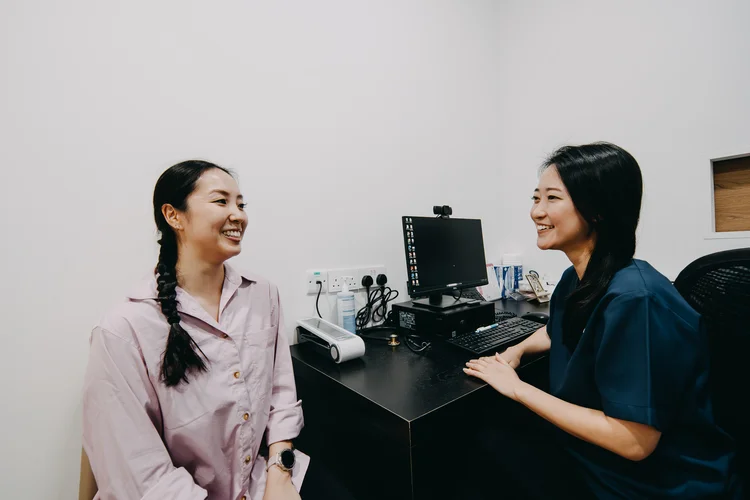Can STDs Be Cured?
Some sexually transmitted diseases (STDs) can be fully cured with the right treatment, while others can only be managed to control symptoms and lower the risk of complications. Knowing which infections are curable and understanding the treatment options available is key to protecting both yourself and those around you. Many STDs may show no symptoms, which underscores the value of awareness, early detection, regular testing, and timely medical care. This is especially important for young adults, who, according to a 2017 Ministry of Health report, have the highest rates of sexually transmitted infections (STIs).


Causes of STDs
STDs result from infections caused by bacteria, viruses, or parasites. These pathogens are primarily transmitted through sexual contact but can also spread via blood, saliva, semen, vaginal fluids, or other bodily fluids. Understanding these transmission pathways can help you adopt safer practices to reduce risks.

Curable and Incurable STDs
Curable STDs, typically caused by bacteria or other microorganisms, can be completely eradicated with timely and appropriate treatment. Incurable STDs, such as HIV and herpes, persist for life but can be managed to alleviate symptoms and reduce transmission risks. However, some viral STDs, like HPV, often clear naturally over time, although certain strains may lead to long-term complications. Additionally, some STDs can remain dormant without presenting symptoms, highlighting the importance of regular testing and awareness.
Common Curable STDs
| STD | Pathogen | Treatment |
|---|---|---|
| Chlamydia | Chlamydia trachomatis | Antibiotics such as doxycycline or erythromycin (typically for individuals under 18 or pregnant women). |
| Gonorrhoea | Neisseria gonorrhoeae | Combination antibiotics like ceftriaxone and azithromycin, or doxycycline for co-occurring chlamydia. |
| Syphilis | Treponema pallidum | Penicillin injections. |
| Trichomoniasis | Trichomonas vaginalis | Antibiotics such as metronidazole. |
Common Incurable STDs
| STD | Virus | Common Treatment |
|---|---|---|
| HIV | Human Immunodeficiency Virus | Antiretroviral therapy (ART) maintains a low viral load, preventing progression to AIDS. |
| Herpes | Herpes Simplex Virus | Antiviral medications like valacyclovir and acyclovir reduce outbreak frequency and severity. |
| HPV | Human Papillomavirus | HPV vaccines can prevent certain strains. Treatment focuses on managing symptoms such as genital warts. |
| Chronic Hepatitis B | Hepatitis B Virus | Antiviral drugs like entecavir and tenofovir slow liver damage. Vaccination helps prevent infection. |
Disclaimer: The information provided here is for general awareness and should not be
considered a substitute for professional medical advice. It’s not an exhaustive list of treatments,
so always consult your doctor for tailored guidance based on your unique needs.
If you suspect exposure to an STD,
seeking prompt medical attention is vital. At healthscreening.sg, we provide comprehensive STD screening packages starting
at just $59.95 NETT, inclusive of GST. To ensure your comfort, male or female doctors are available
based on your preference to conduct the tests.
Living With an Incurable STD
Living with an incurable STD requires adapting to ongoing medical needs and lifestyle changes. Emotional well-being is equally important, and resources like counseling or support groups can provide valuable help. Building trust through transparent communication with partners is essential for maintaining healthy relationships while managing the condition. With the right approach, individuals can continue to lead meaningful and fulfilling lives.

Summary
Understanding which STDs can be cured and how to manage them is key to staying in control of your health. While bacterial infections are often treatable with antibiotics, viral STDs typically require ongoing care to manage symptoms and reduce complications. Acting swiftly with early detection and intervention not only lowers the risk of spreading infections but also safeguard your long-term health. By staying informed and proactive, you can take charge of your sexual health and protect yourself and your loved ones.
Why Choose Us?








Navigate Easy With Google Maps
Health Screening Singapore (Anson House)
Nearest MRT: EW15 Tanjong PagarHealth Screening Singapore (Camden Medical Centre)
Nearest MRT: TE13 Orchard BoulevardHealth Screening Singapore (CPF Jurong Building)
Nearest MRT: NS1/EW24 Jurong EastFrequently Asked Questions (FAQ)
Yes, certain STDs caused by bacteria, such as chlamydia, gonorrhoea, and syphilis, can be permanently cured with the right course of antibiotics.
Bacterial STDs can be completely eliminated with treatment. However, viral STDs like herpes, hepatitis B, and HIV remain in the body and require lifelong management.
Bacterial STDs are generally curable with appropriate treatment. However, viral STDs like herpes, hepatitis B, and HIV cannot be cured but can be managed to control symptoms and reduce complications.
HIV is often considered one of the most serious STDs because of its significant impact on the immune system and the necessity for lifelong management to prevent progression to AIDS if left untreated. Advances in treatment, however, allow individuals to lead healthy lives with proper care.
No. Bacterial STDs can be cured completely, but viral STDs such as herpes, hepatitis B, and HIV stay in the body for life and require ongoing care.
Viral STDs, including HIV, herpes, HPV, and hepatitis B, are not curable. However, their symptoms can be managed with proper treatment. HPV, in particular, often clears naturally over time, but while the infection persists, certain strains can cause complications such as genital warts or cervical cancer.
If both partners are confirmed to be STD-free and maintain a monogamous relationship, the risk of acquiring an STD through sexual contact is minimal. However, external factors, such as prior undiagnosed infections or non-sexual exposures, could still pose a potential risk.
Some STDs, such as bacterial vaginosis or trichomoniasis, can cause an unusual or unpleasant vaginal odour. However, not all STDs are associated with a noticeable smell.
Most STDs are not transmitted through kissing. However, herpes simplex virus (HSV) can spread through oral contact, including kissing.
STDs have been present for thousands of years, originating from various bacteria, viruses, and parasites. Their transmission is primarily through sexual contact and has evolved alongside human behaviour and societal changes.
Condoms significantly lower the risk of transmitting most STDs, especially those spread by bodily fluids like HIV and gonorrhoea. However, they are less effective against STDs transmitted via skin-to-skin contact, such as HPV and herpes.
Human papillomavirus (HPV) is the most common STD worldwide. While it often clears on its own, certain strains can cause genital warts or cervical cancer.
HIV is often regarded as one of the most serious STDs because of its long-term health implications, the risk of progression to AIDS without treatment, and the need for ongoing antiretroviral therapy to effectively manage the condition.
HPV is among the easiest STDs to contract due to its widespread prevalence and transmission through skin-to-skin contact.
In Singapore, chlamydia, gonorrhoea, and syphilis were the three most common sexually transmitted infections reported in 2018, according to a study.
